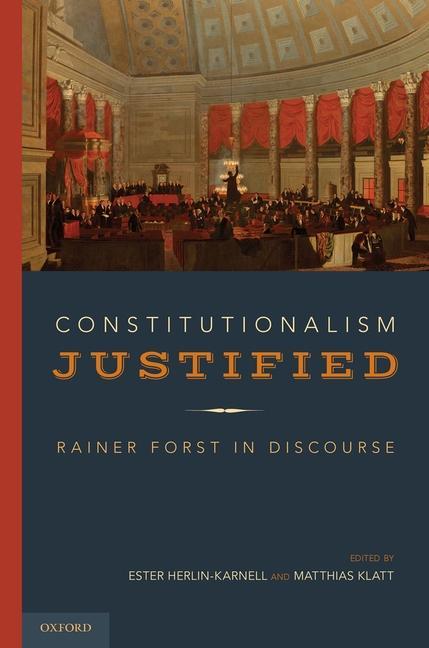
Zustellung: Mi, 16.07. - Mo, 21.07.
Versand in 2 Wochen
VersandkostenfreiBestellen & in Filiale abholen:
This volume analyzes Rainer Forst's theory of the right to justification from legal-philosophical and constitutional-theoretical perspectives. The contributions address issues such as the philosophical foundations of justification and constitutionalism, the justification of human rights, the requirements of social justice, and important elements of constitutional law. Forst responds to the contributions in a concluding chapter.
Inhaltsverzeichnis
- Introduction
- By Ester Herlin-Karnell and Matthias Klatt
- Part One
- The Right to Justification
- 1. The Innate Right of Humanity and the Right to Justification
- By Arthur Ripstein
- 2. Engaging with Forst's "Right to Justification": Kantian Analogies and the Problem of Subjectivity
- By Claudio Corradetti
- 3. Human Rights, Interests, and Variation
- By Andrea Sangiovanni
- 4. Distributions, Relations, and Justifications: Mixing Flavors of Egalitarianism
- By Christian Hiebaum
- 5. Practical Justice
- By Bernhard Schlink
- 6. Noumenal Power, Reasons, and Justification: A Critique of Forst
- By Enzo Rossi and Sameer Bajaj
- 7. The Limits of Justification: Critique Disclosure, and Reflexivity
- By Lois McNay
- Part Two
- Constitutional Theory
- 8. Proportionality and Justification
- By Matthias Klatt
- 9. Republicanising Rights? Proportionality, Justification, and Non-domination
- By Eoin Daly
- 10. Constitutionalism and Justice
- By Alon Harel
- 11. Democracy as Good in Itself: Three Kinds of Noninstrumental Justification
- By Christian F. Rostbøll
- 12. The Concept of Non-domination and the Right to Justification in EU Security-Related Texts
- By Ester Herlin-Karnell
- Part Three
- Responses
- 13. The Constitution of Justification: Replies and Comments
- By Rainer Forst
Produktdetails
Erscheinungsdatum
12. November 2019
Sprache
englisch
Seitenanzahl
384
Herausgegeben von
Ester Herlin-Karnell, Matthias Klatt, Héctor a Morales Zúñiga
Verlag/Hersteller
Produktart
gebunden
Gewicht
680 g
Größe (L/B/H)
236/165/33 mm
ISBN
9780190889050
Entdecken Sie mehr
Bewertungen
0 Bewertungen
Es wurden noch keine Bewertungen abgegeben. Schreiben Sie die erste Bewertung zu "Constitutionalism Justified" und helfen Sie damit anderen bei der Kaufentscheidung.









